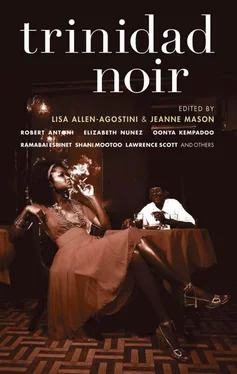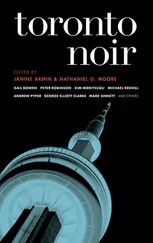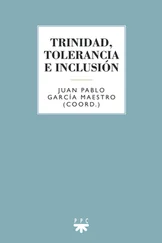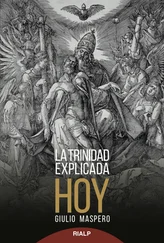Lisa Allen-Agostini - Trinidad Noir
Здесь есть возможность читать онлайн «Lisa Allen-Agostini - Trinidad Noir» весь текст электронной книги совершенно бесплатно (целиком полную версию без сокращений). В некоторых случаях можно слушать аудио, скачать через торрент в формате fb2 и присутствует краткое содержание. Город: New York, Год выпуска: 2008, ISBN: 2008, Издательство: Akashic Books, Жанр: Детектив, на английском языке. Описание произведения, (предисловие) а так же отзывы посетителей доступны на портале библиотеки ЛибКат.
- Название:Trinidad Noir
- Автор:
- Издательство:Akashic Books
- Жанр:
- Год:2008
- Город:New York
- ISBN:978-1-933354-55-2
- Рейтинг книги:4 / 5. Голосов: 1
-
Избранное:Добавить в избранное
- Отзывы:
-
Ваша оценка:
- 80
- 1
- 2
- 3
- 4
- 5
Trinidad Noir: краткое содержание, описание и аннотация
Предлагаем к чтению аннотацию, описание, краткое содержание или предисловие (зависит от того, что написал сам автор книги «Trinidad Noir»). Если вы не нашли необходимую информацию о книге — напишите в комментариях, мы постараемся отыскать её.
Trinidad Noir — читать онлайн бесплатно полную книгу (весь текст) целиком
Ниже представлен текст книги, разбитый по страницам. Система сохранения места последней прочитанной страницы, позволяет с удобством читать онлайн бесплатно книгу «Trinidad Noir», без необходимости каждый раз заново искать на чём Вы остановились. Поставьте закладку, и сможете в любой момент перейти на страницу, на которой закончили чтение.
Интервал:
Закладка:
“Quick or you go dead right here, minute by minute,” Balbosa threatened. “Snake go crawl all over you.”
Sabagal saw it then — the huge reptile unwinding itself in the bamboo cage. Python or macajuel? He trembled, then reluctantly grasped the papers and signed where he was told. Balbosa placed the pages in a black leather bag and zipped it. Sabagal was raised up. Several hands grasped his feeble body and dragged him out of the cave.
It was night. A palpable calm hovered over the still sea. Only the glittering stars gave the scene a sign of life. The black racer was tied under the jetty. But the men lowered Sabagal’s beaten body onto the floor of another power craft specially constructed and outfitted for the high seas.
Across the bay the stuttering engines came to life. Salty sprays flew over the heads of the crew as the boat sped over the water, the shoreline lost in the darkness as the ocean opened up before them. No one tended to the prisoner lying on his back, groaning at the bottom of the boat. Minutes later a light appeared in the east, a dazzling beam that grew brighter. Then they heard the unmistakable drone of a powerboat.
The vessel grew in size, a double hull with intense search beams. Twelve men stood on deck, strapped on the bow. The craft drew alongside, cautioning them to stop. Sabagal wondered if his men were involved with the crew of the other boat. On that watery stage of the ocean theater, the two boats floated against an inky sky, their crews facing each other silently. Ra tatta tatta ta! The marine stillness was shattered by rapid explosions of machine guns erupting into smoke, flames, and splattered blood, shots ringing out as bodies heaved and fell.
Sabagal remained motionless as the men dropped around him, his attackers who moments earlier were full of energy. Total massacre onboard — except for Sabagal, lying motionless on the bottom of the boat. Then, from the invading craft, a long pole loomed and lifted the black bag out of the gore, plucking the treasured documents with Sabagal’s signature scrawled by his cramped hand only moments before. The double-hulled craft awakened to new life and headed toward a horizon tinged with a hint of dawn on rose-pink clouds, leaving a trail of frothing foam gradually dissipating to nothingness.
White herons suddenly lifted off from the mangrove, its branches relieved from the weight of the birds as the cargo of the dead floated past. The spectral sight of death was disturbingly macabre even to the birds perched in clusters. Soon the sky was alive with whirring white wings and chattering herons, as if their cries protested the invasion of their roost. Below, the floating vessel grimly displayed ruptured bodies strewn across the bow, blood-soaked and exposed, as water seeped through the holes of the bullet-punctured boat.
A lone fisherman, casting his net in the bay from a rock, was curious when the noisy gulls hovered over him. Then he saw the boat, drifting listlessly. He assumed there was no one in it until he waded out and discovered the gruesome cargo. Two bodies, shattered by powerful machine-gun fire, were without limbs. A third had its chest ripped open. The others, lying lopsided across the cockpit, were unrecognizable. The horror was too much for the fisherman. He splashed ashore and, leaving his fish and cast net behind, ran to the road yelling like a madman. At the center of the road he waved his hands until he was picked up by a passing motorist. The driver was stunned, thought the fisherman was insane, could not understand why he was behaving in such a manner. But when he looked in the direction of the mangrove where the frantic man was pointing, he saw the place coming alive with a growing crowd.
At the St. Christopher Nursing Home, Sabagal lay still like a white log. Shaven, wrapped like a mummy, he hovered between life and death. Because painful wounds all over made eating or drinking impossible, plastic tubing harnessed his body — protruding from his mouth and nostrils, drips slowly entering his veins, his eyes closed. His family gazed at him and wished he would open his eyes, bring some hope to their yearning to see him live.
His wife Nicola was thankful to the inspectors for hiding her husband from public scrutiny when they escorted the bodies from the boat at the Godineau mangrove. Sabagal had not been identified in that mass of human remains because policemen had kept the crowd away from the bodies.
Still, Scobie and Habib, his home-based trusted men, feared that Sabagal’s enemies might return to kill him. Overcome with the horror of Sabagal’s suffering, they pleaded with the doctors to let them stay late nights in the ward and keep watch, their firearms concealed under their coats. Always on the alert, the two men guarded the steps, watched the elevators open and close, even scrutinized the nurses and maids in their starched white uniforms as they came with their trolleys and trays. Scobie and Habib took no chances. In the past, men had disguised themselves as women and killed patients who had survived prepared executions. The drug-and-gun game of power and death had become a dangerous calamity in districts where the youth were daring and careless. Automatic weapons and more sophisticated rapid-fire Lugers and Smith & Wesson handguns were available, smuggled in in plastic kegs strapped under the hulls of fishing boats and even in the bellies of groupers and sharks.
For weeks, Sabagal remained unresponsive, and except for a faint heartbeat, became an unknown casualty since, fearing his attackers, his family had kept his identity secret. A specialist was brought in from overseas, and later a team of experts. Sabagal’s broken ribs had healed, but the blow to the back of his head still caused a severe throb. He constantly envisioned horrific monsters tormenting him as he drifted between dream and total unconsciousness. Those at his bedside felt despair but prayed the rosary as Father Ignatius repeatedly crossed Sabagal’s forehead with holy oil, invoking the spirits and holding his hand as if to lift him out of the throes of Hell.
On a Saturday, six weeks later, Sabagal’s eyelids fluttered. Nicola was seized with happiness. She laughed and shouted, “Sabi opened he eyes! He is alive. Gosh — he eyes open.”
She had been rooted at his side, only moving to whisper in his ear, wipe his forehead, or kiss his pale cheeks. Now Nicola only cared about the new life given to her dead husband.
During the six weeks Sabagal had been a patient at the prestigious nursing home, the underworld believed that he had been kidnapped and taken to some remote village in Venezuela. And then the secret came to light as the story unfolded in the dailies. Journalists arrived with popping cameras and wrote their front-page blasts in heavy print. Sabagal — the Cloth Merchant, Entrepreneur, Drug Lord — Has Survived His Ordeal.
So Sabagal was removed to a safe house far from his own mansion, perched high atop the hills overlooking the city, where he peered down at the numerous properties he owned and the lands that stretched to the coastline. A sense of belonging was impinged upon by a feeling of lost hope and uselessness creeping over him. His arms, his whole body was still sore and he could not breathe properly. The neck brace kept him uncomfortably immobile as he sat in his special chair. His head kept shaking, and the fever kept his teeth chattering. He was alive, but hopelessly drained of strength and deprived of the will to live.
Memories filled him with remorse or angered him. Balbosa, Teemul, and Manickchand were never dead in his mind. Their falling and covering him on the floor of the boat had saved him the night they were mowed down by the marauders in the double-hulled craft, but he could still hear their voices in the cave when he hung like beef against the rocks, tortured and despised.
Читать дальшеИнтервал:
Закладка:
Похожие книги на «Trinidad Noir»
Представляем Вашему вниманию похожие книги на «Trinidad Noir» списком для выбора. Мы отобрали схожую по названию и смыслу литературу в надежде предоставить читателям больше вариантов отыскать новые, интересные, ещё непрочитанные произведения.
Обсуждение, отзывы о книге «Trinidad Noir» и просто собственные мнения читателей. Оставьте ваши комментарии, напишите, что Вы думаете о произведении, его смысле или главных героях. Укажите что конкретно понравилось, а что нет, и почему Вы так считаете.












